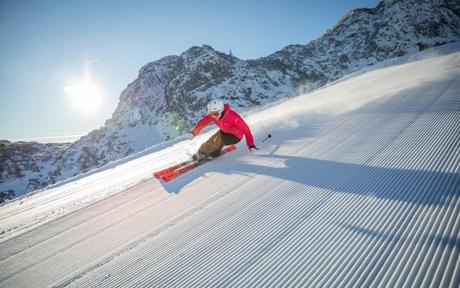
A great start, rain in January, the warmest February on record and then storm cycles that brought the brown mountains back to life: the 2023/2024 ski season will go down in history as strange for forecasters. As winter nears its end, the mercury has plummeted again, leaving skiers wondering: Is this the new normal?
More worryingly, this has led many to believe that the future of ski holidays is doomed, as research shows fear is rising among skiers in Britain. The first survey, conducted by ski holiday provider Erna Low, shows that 91 percent of skiers say irreversible climate change is impacting their ski holidays, while 33 percent say the seasons are getting shorter. Another survey from insurance company InsureandGo was even more startling, with 66 percent of skiers surveyed predicting there would be no snow by December 2030, and 61 percent ruling out ski holidays in April.
But it's the snow Real Are you becoming too unpredictable to book a winter trip? Experts advise that there is no reason to panic yet. Instead, it's a matter of understanding the science and changing habits.
Shorter seasons
While the weather in December begins to show a pattern of falling victim to warm temperatures and rain, late season weather reports also show a pattern of glorious conditions; science shows that the ski season is getting shorter.
A joint study by university researchers from Canada, Great Britain and Austria, published in the journal in early 2024 Current problems in tourism Research shows that warming in mountain areas has accelerated faster than the rest of the world, and average ski seasons in North America have shortened between 5.5 and 7.1 days over the 20-year periods from 1960-1979 to 2000 -2019.
Scientists predict that as global warming continues, ski seasons will continue to decline and will be between 14 days shorter (at best) or as short as 62 days by 2050 if global emissions continue to rise. Elsewhere, researchers from the University of Bayreuth in Germany recently reported that one in eight ski resorts would lose all their snow by the end of the century.
The story continues
Resilient resorts
Jeremy Rollason, head of ski at real estate company Savills, responds that this news may not be as startling as it first appears. "[While the] The contrast this winter between Val d'Isère and some of the lower altitude resorts I've visited, such as Megève, couldn't be more striking. The reality is that we will see snow in the Alps for the rest of our lives, it is true," he said.
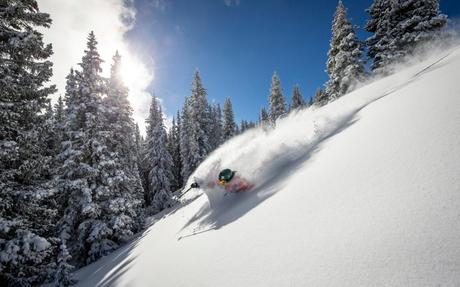
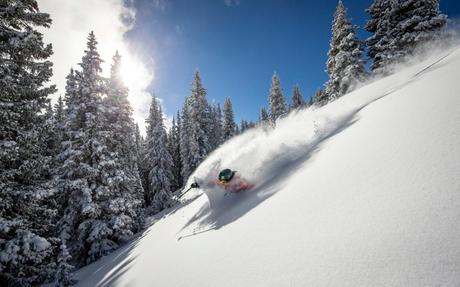
Savills publishes an annual ski resort resilience index to track which resorts are the best to invest in, by measuring the quality and reliability of conditions at resorts. "The most valuable ski areas, in terms of real estate, also happen to be the highest in terms of elevation," Rollason says. Perhaps unsurprisingly, Aspen, Vail, Zermatt, Val d'Isère and Cervinia take the top five - with peak skiing altitudes of 3,417 metres, 3,139 metres, 3,899 metres, 3,455 meters and 3,500 meters respectively.
But with those great heights also comes the question. The French resort of La Plagne operated at full capacity all winter and the slopes - 70 percent of which are over 2,000 meters high - were as busy in the third week of January as in high season.
Achieving capacity
Busy slopes and ski lifts are a hot topic in Europe, where shorter seasons mean holidaymakers have to travel within a smaller time frame. Diego Clara, a spokesman for the Dolomiti Superski area, said the vast Italian ski area, for example, is simply too big to control the number of skiers - but the practice has been used successfully in parts of the US, Canada and Japan.
A spokesperson for Vail Resorts, which owns and operates 42 mountain resorts around the world, said limiting the number of tickets at its North American resorts helps manage the guest experience. "As we continue to grow our base of Epic Pass holders, we are simultaneously focused on preserving the on-mountain experience," the spokesperson said. "To do this - in addition to our major infrastructure investments - we are limiting lift ticket sales every day at all of our North American resorts. We started this practice ahead of the 2021/22 winter season and are continuing it now.
"While lift tickets won't sell out every day at every resort, limiting ticket sales is a lever we can use to help us manage the experience during the most popular times."
It's something that ski resorts in Europe may have to adopt as climate change progresses, but a spokesperson for Domaines Skiables de France, a conglomerate of more than 230 French ski resorts, said The Telegraph it is too early to confirm any changes.
The new normal
The best rule to follow these days, Patrick Thorne advised: The Telegraph 's snow guru, is "expect the unexpected."
"After 40 years of monitoring snow conditions at ski resorts around the world, the most important rule I have is to expect the unexpected," he said.
"The standard advice has always been: when you go skiing [at] At Christmas or Easter, look for a resort with lots of terrain above 2,000 metres, or perhaps head north to Scandinavia, but that's the advice all season long."
Others argue for a refocus on the spring months. Skiing on Sunday 's Chemmy Alcott said: "I don't know why more skiers don't ski later in the season. The slopes and lifts are empty and spring isn't like Christmas in the mountains, more often than not there are great conditions in April - I've just had a week of powder days at a training camp in St. Moritz - skiers would arrive later skiers have to think in terms of the season and adapt to it." The presenter expressed her concerns about the future of ski competitions this winter, following the cancellation of a number of high-profile races due to weather conditions.
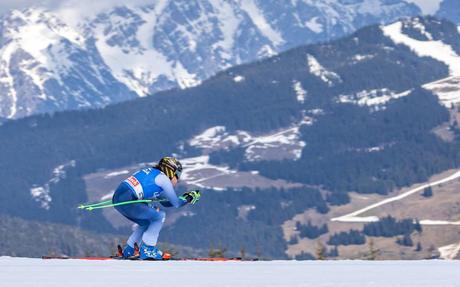
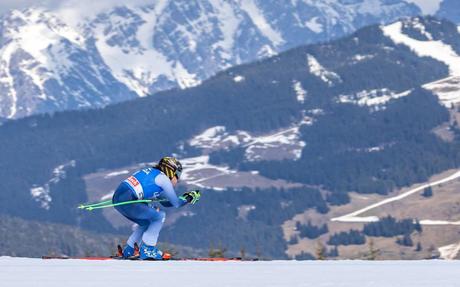
The Serre Chevalier resort in the southern French Alps will close this winter, as it does most years, on April 14. The resort's general manager, Patrick Arnaud, said: "We never close because there is no snow - we close because we have too few skiers. . We could stay open until May, but no one comes. Conditions in April are great because although temperatures are higher, the base is the result of snowfall throughout the season."
Spring skiers are also likely to hit the empty slopes as misconceptions keep people from visiting the slopes. "People don't trust the snow at the end of the season because it is not visible in the city [at] low altitudes," said Arnaud.
Snow cannons save the day
In addition to natural snow, new technology allows ski areas to extend their seasons, argues Austrian climate researcher Günther Aigner. His research shows that the Kitzbühel Valley has lost 12 cm of natural snow cover over the past 126 years, which equates to 13 days of natural snow cover per season - but no lost skiing days.
"The number of skiing days per season in Kitzbühel has actually shown spectacular growth since the 1980s, thanks to the use of artificial snow technology and snow farming techniques. Similar trends can be seen everywhere in the country," he explained.
But artificial snow production relies on cold temperatures - to be most successful, that means below 0C. With freezing temperatures rising every year, resorts face challenges.
Future-proof holidays
This winter, more skiers have turned to last-minute holiday bookings and confidence in March travel has increased, according to joint research from the Ski Club of Great Britain (SCGB) and Listex (the London International Snowsports Trade Exchange), which found that 52 percent of skiers planned to book a trip in March, compared to 40 percent last year. However, few are still planning to go skiing at Easter or beyond.
SCGB chief executive James Gambrill said: "January and March are consistently the big months for skiers booking - since Covid, March has gained ground at the expense of December.
"The biggest shift is the shortening of booking lead times - I hear that from everyone."
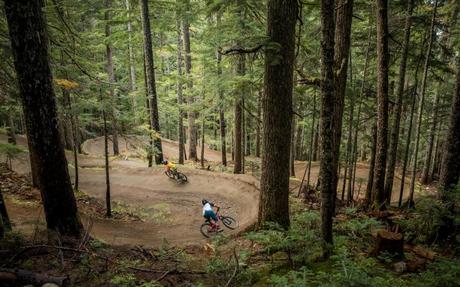
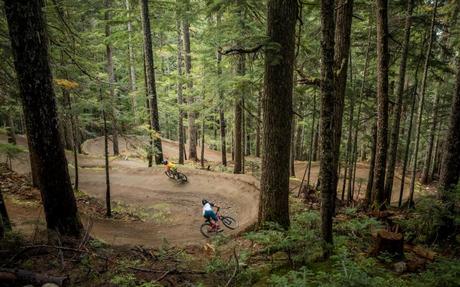
Gambrill urges skiers not to put away their skis too quickly, adding: "Keep an eye on the snow forecast and prepare for a last-minute trip if you can, and maybe in the spring you'll get the best skiing of the season."
Adaptability is the key message given to skiers, both when booking and during their holiday. Canada's premier resort, Whistler, has been known for rain at lower elevations for years - this winter was no different. The destination has long encouraged visitors to take mountain vacations that are more than just skiing.
Mike Douglas, a local resident of Whistler, is the founder of Protect Our Winters Canada. He enjoyed the late season powder on the slopes, but told The Telegraph: "I've done a lot of mountain biking in the valley this season... the idea of thinking about progress is adapting and being flexible with your sport and the way you look at a winter holiday."
